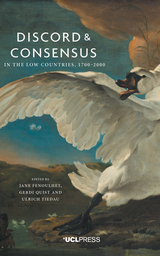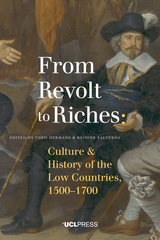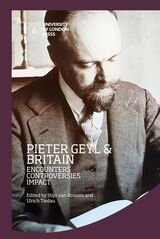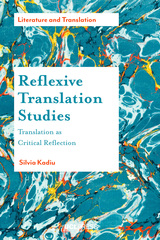4 books about Tiedau, Ulrich

Discord and Consensus in the Low Countries, 1700-2000
Edited by Jane Fenoulhet, Gerdi Quist, and Ulrich Tiedau
University College London, 2016
All countries, regions and institutions are ultimately built on a degree of consensus, on a collective commitment to a concept, belief or value system. This consensus is continuously rephrased and reinvented through a narrative of cohesion and challenged by expressions of discontent and discord. The history of the Low Countries is characterised by both a striving for consensus and eruptions of discord, both internally and from external challenges. This interdisciplinary volume explores consensus and discord in a Low Countries context along broad cultural, linguistic and historical lines. Disciplines represented include early-modern and contemporary history; art history; film; literature; and translation scholars from both the Low Countries and beyond.
[more]

From Revolt to Riches
Culture and History of the Low Countries, 1500–1700
Edited by Theo Hermans, Reinier Salverda, and Ulrich Tiedau
University College London, 2017
This collection investigates the culture and history of the Low Countries in the 16th and 17th centuries from both international and interdisciplinary perspectives. The period was one of extraordinary upheaval and change, as the combined impact of Renaissance, Reformation and Revolt resulted in the radically new conditions – political, economic and intellectual – of the Dutch Republic in its Golden Age. While many aspects of this rich and nuanced era have been studied before, the emphasis of this volume is on a series of interactions and interrelations: between communities and their varying but often cognate languages; between different but overlapping spheres of human activity; between culture and history. The chapters are written by historians, linguists, bibliographers, art historians and literary scholars based in the Netherlands, Belgium, Great Britain and the United States. In continually crossing disciplinary, linguistic and national boundaries, while keeping the culture and history of the Low Countries in the Renaissance and Golden Age in focus, this book opens up new and often surprising perspectives on a region all the more intriguing for the very complexity of its entanglements.
[more]

Pieter Geyl and Britain
Encounters, Controversies, Impact
Edited by Stijn van Rossem and Ulrich Tiedau
University of London Press, 2022
An examination of the work and influence of historian Pieter Geyl.
Pieter Geyl (1887—1966) was undoubtedly one of the most internationally renowned Dutch historians of the twentieth century, but also one of the most controversial. Having come to the United Kingdom as a journalist, he started his academic career at the University of London in the aftermath of World War I and played an important role in the early days of the Institute of Historical Research. Known in this time for his reinterpretation of the sixteenth-century Dutch Revolt against the Habsburgs that challenged existing historiographies of both Belgium and the Netherlands but was also linked to his political activism in favor of the Flemish movement in Belgium, Geyl left his stamp on the British perception of Low Countries history before moving back to his country of origin in 1935. Having spent World War II in German hostage camps, he famously coined the adage of history being “a discussion without end” and reengaged in public debates with British historians after the war, partly conducted on the airwaves of the BBC. A prolific writer and an early example of a public intellectual, Geyl remains one of the most influential thinkers on history of his time. The present volume reexamines Geyl’s relationship with Britain (and the Anglophone world at large) and sheds new light on his multifaceted work as a historian, journalist, homme de lettres, and political activist.
Pieter Geyl (1887—1966) was undoubtedly one of the most internationally renowned Dutch historians of the twentieth century, but also one of the most controversial. Having come to the United Kingdom as a journalist, he started his academic career at the University of London in the aftermath of World War I and played an important role in the early days of the Institute of Historical Research. Known in this time for his reinterpretation of the sixteenth-century Dutch Revolt against the Habsburgs that challenged existing historiographies of both Belgium and the Netherlands but was also linked to his political activism in favor of the Flemish movement in Belgium, Geyl left his stamp on the British perception of Low Countries history before moving back to his country of origin in 1935. Having spent World War II in German hostage camps, he famously coined the adage of history being “a discussion without end” and reengaged in public debates with British historians after the war, partly conducted on the airwaves of the BBC. A prolific writer and an early example of a public intellectual, Geyl remains one of the most influential thinkers on history of his time. The present volume reexamines Geyl’s relationship with Britain (and the Anglophone world at large) and sheds new light on his multifaceted work as a historian, journalist, homme de lettres, and political activist.
[more]

Re-Mapping Centre and Periphery
Asymmetrical Encounters in European and Global Contexts
Edited by Tessa Hauswedell, Axel Körner, and Ulrich Tiedau
University College London, 2019
Historians often assume a one-directional transmission of knowledge and ideas, leading to the establishment of spatial hierarchies defined as centers and peripheries. In recent decades, transnational and global historians have contributed to a more inclusive understanding of intellectual and cultural exchanges that profoundly challenges the ways we draw our mental maps. Covering the early modern and modern periods, Re-Mapping Centre and Periphery investigates the asymmetrical and multidirectional structure of such encounters within Europe as well as in a global context. The international team of contributors demonstrates how, as products of human agency, center and periphery are conditioned by mutual dependencies. Rather than representing absolute categories of analysis, they are subjective constructions determined by a constantly changing discursive context. Through its analysis, the volume develops and implements a conceptual framework for remapping centers and peripheries, based on conceptual history and discourse history
[more]
READERS
Browse our collection.
PUBLISHERS
See BiblioVault's publisher services.
STUDENT SERVICES
Files for college accessibility offices.
UChicago Accessibility Resources
home | accessibility | search | about | contact us
BiblioVault ® 2001 - 2024
The University of Chicago Press









